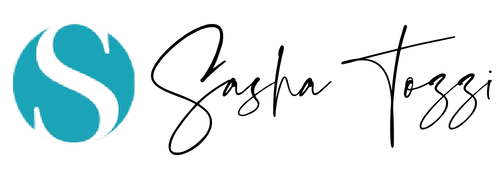No matter what addiction you’re recovering from, this will help.
The goal is not only to stay sober, but to be sober, happy, and thriving.
Even after five years of sobriety, I easily find myself tempted to act out in unhealthy ways when I am not regularly using these five simple tools.
1. Support System/Connection/Your Tribe
“The opposite of addiction is not sobriety, it’s connection.”
We heal through our stories. We heal through connecting with others and being vulnerable.
Addiction is the Great Separator; vulnerability is the Great Connector. One basic human need is the need to belong, according to Abraham Maslow's hierarchy of human needs. It takes some trial and error and sometimes a little creativity to find your tribe, but I promise you they're out there.
Here are a few ways to look for your people: attend conferences or retreats on things that interest you and where you'll find like-minded folks; frequent yoga studios or other fitness communities; explore meetup.com and facebook groups; join a local sports team; volunteer at one of your favorite non-profits; or join a church.
Professional support is also vital. Build up your personal team of sponsors, therapists, doctors, coaches (me), healers, 12-step programs and any other kind of support group that help you. I've compiled a list in the Resource Center.
2. Routine & Ritual & Stillness
“An idle mind is the devil’s playground.”
The importance of establishing a regular routine that supports healthy habits cannot be overestimated. Your routine is yours and you get to decide what your “non-negotiables” are. Simplify your daily life with the things that are most important—these things define your day and ultimately streamline your life.
Personally, I read my daily readers and eat a protein-packed breakfast within an hour of waking up in the morning as part of my daily routine. I know I need this and I don’t question it. I just make it a non-negotiable part of each day.
Ritualizing a few simple things in your daily life can provide much-needed structure. Living in addiction is total chaos so building structure into your schedule will help you recover.
Bookend your days with routine. They can be spiritual bookends such as prayer every morning upon waking and every evening before going to sleep, or simply a morning cup of coffee and evening cup of tea. But whatever you do, take a few moments to get quiet and connect with yourself every single day.
3. Exercise/Movement
“Don’t think, it complicates things. If it feels like home, then follow it’s path.”
Get out of your head and into your body. The physical aspect of recovery is extremely important. I practice a lot of yoga and see it as a therapeutic tool, or medicine for my soul. It has been especially beneficial in helping to change my eating habits and heal my body image issues. Without it, my recovery would not be nearly as strong.
Do exercise or some form of movement every day that feels good to you (walking, running, dancing, tennis, swimming, biking, etc.) and don’t question it—just do whatever your body is prompting you to do. Your body will tell you how it wants to move. But it wants to move, in some capacity. Our bodies are designed for that. Any kind of movement will release dopamine and serotonin—the very chemicals the addictive brain craves.
4. Education/Self-Knowledge
“The greatest thing in the world is to know how to belong to oneself.”
Remember who you were before you were hijacked by addiction? Maybe. Maybe not.
Often, when the fog of addiction is lifted, we're left with an identity vacuum since so much of ourselves was lost in our substance. This re-acquaintance with ourselves will take some time, but the discovery can be incredible.
Educate yourself and read enthusiastically. Learn about yourself and trust what you learn. Take quizzes and personality tests and read your horoscope and find out what your passions are. What's your love language? What makes you feel alive? What brings you joy? Find out if you're an introvert or extrovert. Maybe it’s not what you expected or not what it used to be. And that's ok—just go with it. Rumi says, “Let yourself be silently drawn by the strange pull of what you really love. It will not lead you astray.”
Understanding of self is important and understanding is reached only through rigorous honesty. Be who you are while being open to change as you keep growing.
5. Nutrition/Food Plan
“Let food be thy medicine, and medicine be thy food.”
Eat as whole as possible. This means fewer packaged foods with fewer ingredients and ones that you can easily pronounce. The ability to do this is often relative to where we live and what we have access to, but as much as possible, let food fuel you and be your medicine.
Food can be used to produce more "dis-ease" or it can be used to rebuild your health—it's up to you. If food is your drug of choice, bring in the troops and get on a program (see Tool #1). You feel better when you eat better and it’s one of the simplest ways to upgrade your life and mood.
Start wherever you are and gradually phase out your least healthy habit first (for example: quit nicotine, then soda, and later on excessive caffeine). One thing at a time, over time. If your issue is overeating, I've outlined the four most common emotions that make you want to overeat and what to do instead.
As a lifestyle and recovery coach, I offer 1:1 private coaching to help guide you on your path, whatever your addiction or self-sabotaging habit. Let yourself receive a little help. You’re worth it, and your best self is waiting for you.
Email me at sashatozzi84@gmail.com for a free consultation and let's explore working together.









